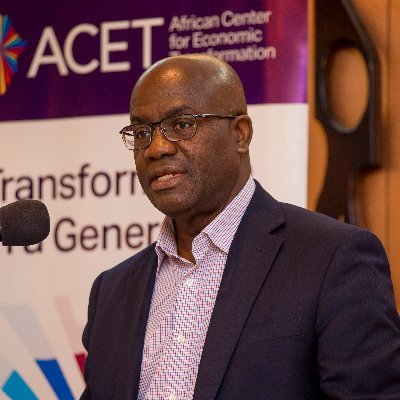Senior Fellow at African Centre for Economic Transformation (ACET), Dr. John Asafu-Adjaye, has said given that Africa received relatively little climate finance, especially for adaptation, which undermines the ability of local communities to build resilience to climate change, the continent must present a strong and a united position at the upcoming United Nations Climate Change Conference (COP27).
Africa, with 17 percent of the world’s population, contributes a mere 4 percent to global emissions. Though least responsible, the continent is most vulnerable to climate change, impeding its long-term sustainable development and posing an immediate threat to the people and livelihoods.
Annually, loss and damage caused by climate change range from US$29billion to US$44billion, and adaptation costs in Africa for the period 2020-2030 are estimated between US$259billion and US$407billion.
It is against this background that ACET believes it is critical for countries to join forces to push for bold commitments globally, regionally, and locally to help combat the worst impact of climate change, and create space for African innovation and development.
ACET argues that a better climate agenda can further economic transformation by driving job creation, agricultural transformation, and technology transfers.
“With the rising price of oil and supply uncertainty, many advanced countries are now focused on increasing their energy supplies from fossil fuels, raising concern that they might renege on their NDCs, as well as their commitments to increase climate finance to the developing countries. To progress in addressing climate risk, Africa needs to present a strong and united position at COP27 and beyond,” Dr. Asafu-Adjaye noted at ACET’s second African Transformation Briefing.
According to ACET, between 2016 and 2019, Africa received approximately US$73billion in climate finance – falling short of the continent’s needs. It added that Africa receives less than 4 percent of global climate finance, while 60 percent of the financing for adaptation and resilience in Africa is in the form of loans.
Cost of inaction on climate finance
Dr. Asafu-Adjaye reiterated that the inaction in providing adequate climate finance, particularly for adaptation-related activities, is having several adverse impacts on the African continent and worsening food security.
“The cost of inaction can also be viewed in terms of the foregone benefits of improved energy access. For example, providing access to clean cooking facilities could prevent around 300,000 children from dying annually from acute respiratory tract infections. Inaction on climate finance will also worsen living standards on the continent,” he intimated.
He further said due to a lack of technical expertise, many African countries are unable to develop bankable projects that meet the needs of funders and, hence, must do the needful to prevent the problems that come with inaction.
“I am sure that cost of inaction in providing adequate climate finance has contributed to the loss of lives and livelihoods in many parts of the continent,” he said.










